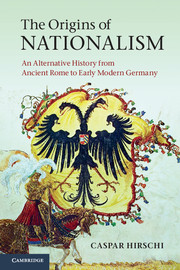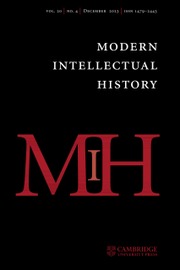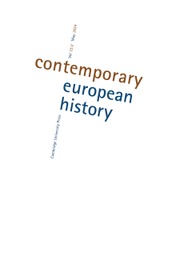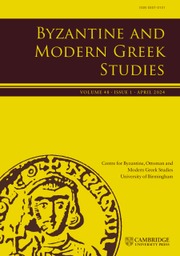The Origins of Nationalism
An Alternative History from Ancient Rome to Early Modern Germany
£22.99
- Author: Caspar Hirschi, Swiss Federal Institute of Technology, Zürich
- Date Published: December 2011
- availability: Available
- format: Paperback
- isbn: 9780521747905
£
22.99
Paperback
Other available formats:
Hardback, eBook
Looking for an inspection copy?
This title is not currently available on inspection
-
In this wide-ranging work, Caspar Hirschi offers new perspectives on the origins of nationalism and the formation of European nations. Based on extensive study of written and visual sources dating from the ancient to the early modern period, the author re-integrates the history of pre-modern Europe into the study of nationalism, describing it as an unintended and unavoidable consequence of the legacy of Roman imperialism in the Middle Ages. Hirschi identifies the earliest nationalists among Renaissance humanists, exploring their public roles and ambitions to offer new insight into the history of political scholarship in Europe and arguing that their adoption of ancient role models produced massive contradictions between their self-image and political function. This book demonstrates that only through understanding the development of the politics, scholarship and art of pre-modern Europe can we fully grasp the global power of nationalism in a modern political context.
Read more- Offers a new theory of the origins of nationalism - a fundamental political force in European and global history to this day
- Explores the links between patriotic and nationalist language, questioning the widespread juxtaposition of 'good' patriotism and 'bad' nationalism
- Emphasises the close links between the origins of nationalism and the history of political scholarship in Europe
Reviews & endorsements
'… a worthy contribution to the scholarly literature on nationalism … The particularly noteworthy and worthwhile aspect of Hirschi's definition of the nation is its focus on the multipolarity of nationality in contrast to the bipolarity of empire … There is much to commend in this analysis of the emergence of a multicentric discourse of nationality … Hirschi's admirable focus on the humanists and events of the fifteenth through seventeenth centuries clearly supports his argument that nationality is not exclusively modern. He is right.' Steven Grosby, Reviews in History (history.ac.uk/reviews)
Customer reviews
Not yet reviewed
Be the first to review
Review was not posted due to profanity
×Product details
- Date Published: December 2011
- format: Paperback
- isbn: 9780521747905
- length: 253 pages
- dimensions: 228 x 152 x 13 mm
- weight: 0.41kg
- contains: 14 b/w illus.
- availability: Available
Table of Contents
1. Introduction
2. The modernist paradigm: strengths and weaknesses
3. Foundations of a new nationalism theory
4. Killing and dying for love: the common fatherland
5. Competing for honour: the making of nations in late medieval Europe
6. The nationalist transformation of borders and languages
7. Humanist nationalism
8. A German Emperor for the German people
9. Nation and denomination
10. Conclusion.
Sorry, this resource is locked
Please register or sign in to request access. If you are having problems accessing these resources please email [email protected]
Register Sign in» Proceed
You are now leaving the Cambridge University Press website. Your eBook purchase and download will be completed by our partner www.ebooks.com. Please see the permission section of the www.ebooks.com catalogue page for details of the print & copy limits on our eBooks.
Continue ×Are you sure you want to delete your account?
This cannot be undone.
Thank you for your feedback which will help us improve our service.
If you requested a response, we will make sure to get back to you shortly.
×

.jpg)



.jpg)